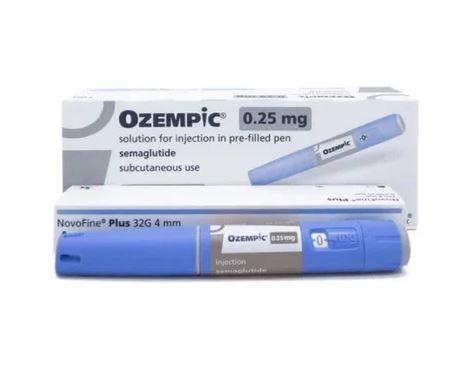Seroquel Withdrawal (Quetiapine withdrawal)
Learn the side effects of Seroquel withdrawal. Some people may experience different withdrawal levels, and long-term side effects of Seroquel use due to particular health conditions. Weaning off Seroquel, troubles can arise when many individuals try to withdraw from Seroquel without proper information or consultation with a medical professional. Significant risks are connected with quitting Seroquel cold turkey, especially for those using high doses of this medication. There are several options for Quetiapine treatment discontinuation to ensure the patient safely gets off the drug with minimal to no Seroquel withdrawal peak.
Withdrawal is a term used to describe a collection of symptoms resulting from a substance abruptly leaving your body. The symptoms are unique to the substance but may be similar to the withdrawal symptoms of other substances in the same class.
Seroquel has the active ingredient quetiapine and is most often administered as an antipsychotic. Seroquel exerts several effects on the human central nervous system. Quitting Seroquel abruptly may lead to serious health issues by affecting the distribution of significant neurotransmitters in the brain. Seroquel withdrawal symptoms can be extreme and pose a risk to well-being.
What is Seroquel (Quetiapine)?
What is Seroquel? It is the brand name of quetiapine, an antipsychotic drug approved by the U.S. Food and Drug Administration (FDA) [1] for schizophrenia treatment, major depression disorder treatment, and bipolar disorder treatment. Sometimes, a doctor may prescribe this medication for insomnia or anxiety. It works to rebalance serotonin and dopamine to improve a person’s mood, behavior, and thinking. This drug comes in a tablet form meant to be ingested orally. Seroquel has two formulations: IR (immediate release) and XR (“extended-release”).
Can you get addicted to Seroquel? Seroquel is not a controlled substance, but there is still a risk of Seroquel abuse or addiction. It is essential to understand how this drug can affect people, especially if someone takes it improperly. There are reports of drug abuse by crushing and snorting the tablets, injecting the medication, or combining it with cocaine and injecting the mixture.

Withdrawal from Seroquel Side Effects
Seroquel withdrawal side effects include:
- Itchy red skin
- Shortness of breath
- Vomiting
- Insomnia
- Inflamed stomach
- Dehydration
- Fatigue
- High Anxiety
- Depression and suicidal thoughts
- Rapid weight loss or weight gain
- Difficulty in seeing
- Kidney problems
- Low libido
- Hallucinations
- Low appetite
- Frequent urination
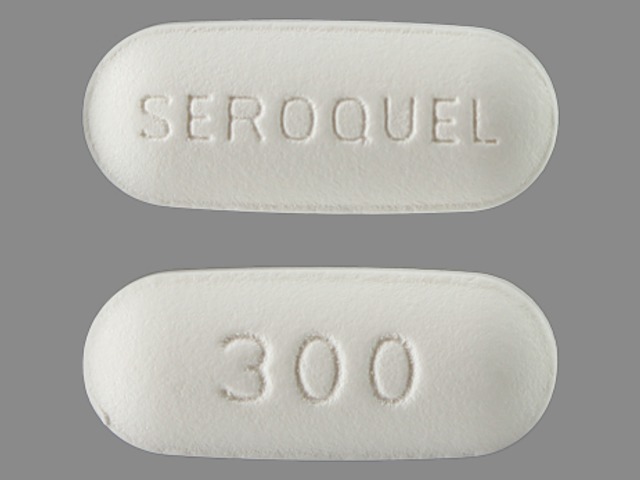
Skip To
Learn More:
Seroquel Side Effects
Is Seroquel an opioid? No. Seroquel (quetiapine) is an atypical antipsychotic medication used to treat schizophrenia and bipolar disorder. Like all medications, Seroquel can cause side effects, although not everyone who takes the drug will experience them.
Common side effects of Seroquel may include:
- Drowsiness
- Dry mouth
- Constipation
- Weight gain
- Nausea
- Vomiting
Less common side effects of Seroquel may include:
- Dizziness
- Lightheadedness
- Rapid heartbeat
- Fever
- Muscle stiffness
- Tremors
- Restlessness
If you experience any of these typical Seroquel side effects while taking the drug, contact your healthcare provider. It is important to tell your healthcare provider about all medications you are taking and any allergies you have to help prevent potential interactions or allergic reactions.
In rare cases, the dangers of Seroquel for sleep and the long term side effects of Seroquel may cause severe adverse health problems like:
- Allergic reactions (rash, hives, itching, difficulty breathing, chest tightness, swelling of the face, lips, tongue, or throat)
- Neuroleptic malignant syndrome (a potentially life-threatening condition characterized by fever, muscle rigidity, and changes in mental status)
- Tardive dyskinesia (involuntary movements of the face, tongue, or other body parts)
- Seizures
- Changes in blood pressure (high or low)
- Chest pain
- Shortness of breath
- Swelling of the feet or ankles
If you experience any of the above Seroquel side effects, consult your medical provider immediately.

Get Your Life Back
Find Hope & Recovery. Get Safe Comfortable Detox, Addiction Rehab & Mental Health Dual Diagnosis High-Quality Care at the We Level Up Treatment Centers Network.
Hotline (877) 378-4154Seroquel Statistics Reveal The Risks The Drug Poses
Over 30 years, there was an increase in antipsychotic prescribing associated with an increase in antipsychotic overdoses. Although the type of antipsychotics changed, the morbidity and mortality remained the same, so antipsychotics are an increasing proportion of overdose admissions. This is according to a study published by the National Center for Biotechnology Information or NCBI. [2]
1 in 5,000
The mortality rate associated with antipsychotic drugs, including Seroquel cases, is one in 5,000 reported exposures that end in death.
Source: NCBI
180%
Over 26 years, antipsychotic overdoses increased 1.8‐fold or 180%, with first-generation antipsychotics decreasing to one‐fifth of their peak (≈80/year to 16) and second-generation antipsychotics increasing to double this (≈160/year), olanzapine and quetiapine accounting for 78%.
Source: NCBI
15.7%
All antipsychotic overdoses had a median length of stay of 18.6 h; 15.7% were admitted to the intensive care unit, 10.4% were ventilated, and 0.13% died in hospital, which was the same for first-generation compared to second-generation antipsychotics.
Source: NCBI
Seroquel Withdrawal
(Quetiapine Withdrawal) Facts
Seroquel withdrawal is a common occurrence for those who have taken the drug for a long period of time. Common symptoms include insomnia, irritability, insomnia, agitation, nausea, headache, and tremors. For an effective withdrawal, it is important to have medical and psychological support to help cope with the withdrawal symptoms.
Is Seroquel a controlled substance?
Although Seroquel (quetiapine) is not a controlled substance, it does have a potential for misuse or abuse. It has the highest potential for abuse when it’s taken without a prescription or taken in a way other than that suggested by a health professional.
Generic Name: Quetiapine [ kwe-TYE-a-peen ]
Brand Names: SEROquel, SEROquel XR
Drug Class: Atypical Antipsychotics
Seroquel is an antipsychotic medicine. It works by changing the actions of chemicals in the brain.
Seroquel treats schizophrenia in adults and children at least 13 years old. It treats bipolar disorder (manic depression) in adults and children at least 10 years old.
Seroquel is also used with antidepressant medications to treat the major depressive disorder in adults. Seroquel for pain management Seroquel may also be used for purposes not listed in this medication guide, such as Seroquel for alcohol withdrawal. However, Seroquel and alcohol interactions can produce adverse effects, so using Seroquel for alcohol must be supervised by medical professionals.
Can you take Xanax with Seroquel? Using Xanax with Seroquel may increase side effects such as dizziness, drowsiness, confusion, and difficulty concentrating. Some people, especially the elderly, may also experience impaired thinking, judgment, and motor coordination. These medicines may interact, cause very harmful effects, and are usually not taken together.
Does Seroquel help with withdrawal? Seroquel has also been researched to help relieve symptoms of co-occurring psychiatric conditions, like mood and anxiety disorders, that can manifest themselves during opiate withdrawal.
Is Seroquel controlled? Does Seroquel get you high? Seroquel is not widely considered a controlled substance.
Does Seroquel make you high? If Seroquel is abused, it can cause a person to feel an intense and potentially dangerous high. Abusing Seroquel to improve mood, increase pleasure, or reduce anxiety may result in unpleasant or fatal side effects.
Does Seroquel help with alcohol withdrawal? It would be best if you avoid drinking alcohol while taking any form of quetiapine, including Seroquel and Seroquel XR. This is because quetiapine can worsen both cognitive and motor side effects of alcohol, like drowsiness and delayed reflexes.
Quetiapine Withdrawal Symptoms
Quetiapine withdrawal symptoms may include insomnia, headaches, nausea, fatigue, dizziness, irritability, anxiety and agitation. Quetiapine withdrawal can also produce symptoms such as confusion, disorientation and difficulty concentrating. If you are withdrawing from quetiapine and experience any of these symptoms it is important to seek medical advice as soon as possible.
When to Contact a Medical Professional
Mixing Seroquel with alcohol is dangerous. See your provider if you or someone you know has symptoms of Seroquel high and quetiapine withdrawal symptoms. It is especially important to seek help immediately if you or someone you know is having a quetiapine alcohol overdose.
You can also call 911 or the local emergency number or go to the hospital emergency room. DO NOT delay.
If someone you know has attempted a drug overdose, call 911 or the local emergency number immediately. DO NOT leave the person alone, even after you have called for help.
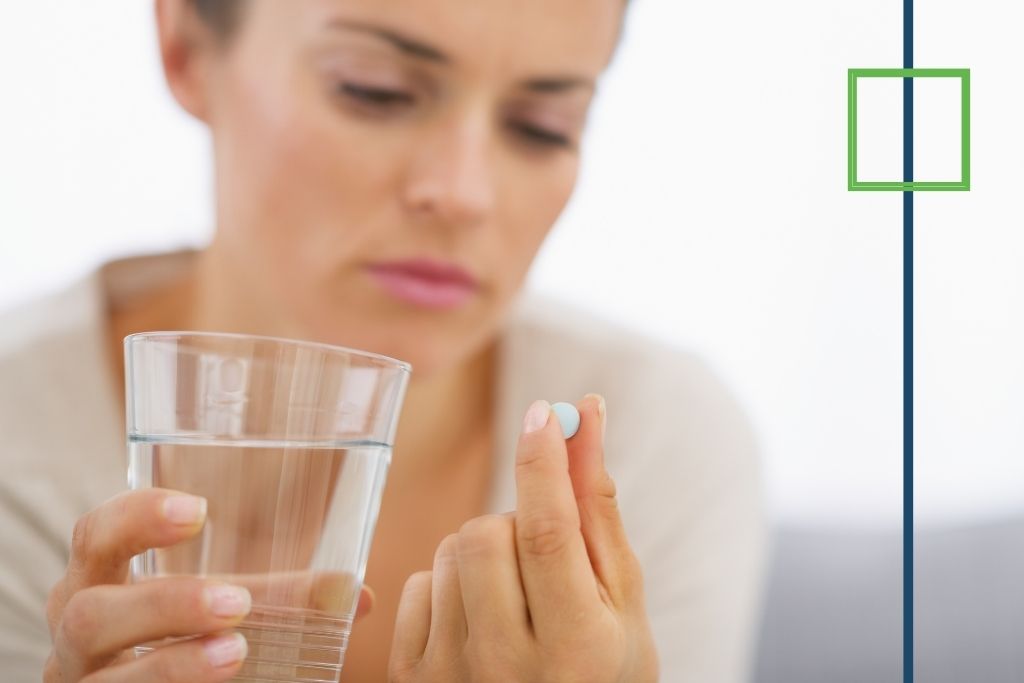
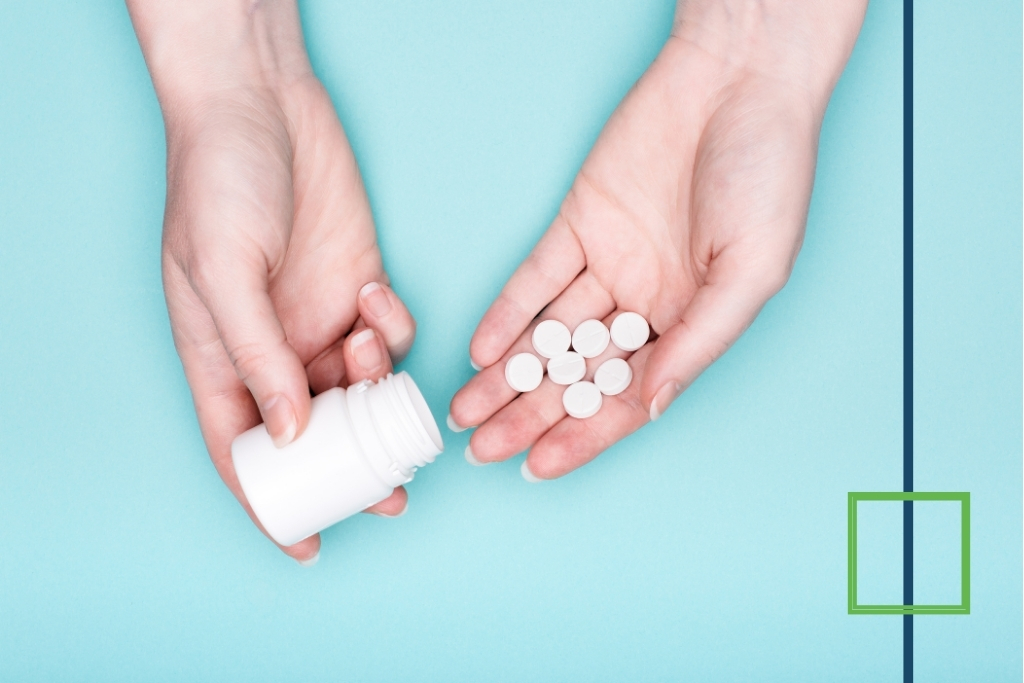
Neurological Seroquel Withdrawal Symptoms
Dizziness, headache, and irritability commonly occur during “withdrawal Seroquel.” Neurological brain chemicals typically work together with antipsychotic and antidepressant prescription drugs, reducing symptoms of mental illness. An abrupt Seroquel stopping can disrupt this balance. Potassium and sodium, for instance, maintain chemical and electrical reactions in the brain and affect all brain and organ functions. Therefore, imbalances can also cause:
- Thirst
- Fatigue
- Disorientation
- Even death, if not medically supervised
Gastrointestinal Seroquel Withdrawal Symptoms
The side effects stopping Seroquel can cause vomiting, nausea, and diarrhea. Seroquel disrupts serotonin levels in the brain that control intestinal and stomach reflexes. The resulting imbalances in these reflexes and irritation to the stomach lining may cause pain, cramping, nausea, and vomiting [3]. Abrupt chemical changes in the brain can also produce dizziness, which can cause nausea or vomiting. Diarrhea is another Seroquel withdrawal symptom. Disruption of delicate intestinal balances can irritate the intestines, and diarrhea is the body’s attempt to cleanse itself of these irritants.
Seroquel (quetiapine) is an atypical antipsychotic medication that is often used as a treatment for schizophrenia and bipolar disorder. It can also help with insomnia, but it is generally not the first-line treatment for this condition. There are some potential risks and side effects of Seroquel for sleep associated with the use of Seroquel for sleep, including:
- Drowsiness and sedation: Seroquel can cause drowsiness and sedation, which can be helpful for people with insomnia, but can also be dangerous if you are driving or operating heavy machinery.
- Risk of falls: Seroquel can cause dizziness, increasing the risk of falls.
- Changes in blood pressure: Seroquel can cause changes in blood pressure, harming people with certain medical conditions.
- Risk of weight gain: Seroquel can cause weight gain, which can harm people who are already overweight or have a chance of developing obesity.
- Risk of metabolic changes: Long-term use of Seroquel has been associated with changes in metabolism that can increase the risk of developing diabetes and other metabolic conditions.
Searching for “stopping Seroquel for sleep?” “Seroquel side effects sleep,” or sleep Seroquel side effects? It’s important to talk to your doctor about the potential risks and benefits of using Seroquel for sleep and to carefully follow the dosing and use instructions provided by your doctor. It’s also important to report any side effects you experience while taking Seroquel to your doctor.
Get Help. Get Better. Get Your Life Back.
Searching for Accredited Drug & Alcohol Rehab Centers Near You? Or Mental Health Support?
Even if you have failed previously, relapsed, or are in a difficult crisis, we stand ready to support you. Our trusted behavioral health specialists will not give up on you. Call us when you feel ready or want someone to speak to about therapy alternatives to change your life. Even if we cannot assist you, we will lead you wherever you can get support. There is no obligation. Call our hotline today.
FREE Addiction Hotline – Call 24/7Seroquel Withdrawal Symptoms Infographic
Learn about the negative effects of stopping Seroquel. Due to certain medical conditions, some people may have varying degrees of withdrawal and long-term negative effects from using Seroquel. When many people attempt to discontinue from Seroquel without adequate knowledge or consultation with a medical practitioner, problems may occur. Cold turkey withdrawal from Seroquel carries significant hazards, especially for people taking large doses of this medicine. To ensure that the patient safely withdraws off the drug with little to no peak in Seroquel withdrawal, there are a number of ways for stopping the Quetiapine treatment.
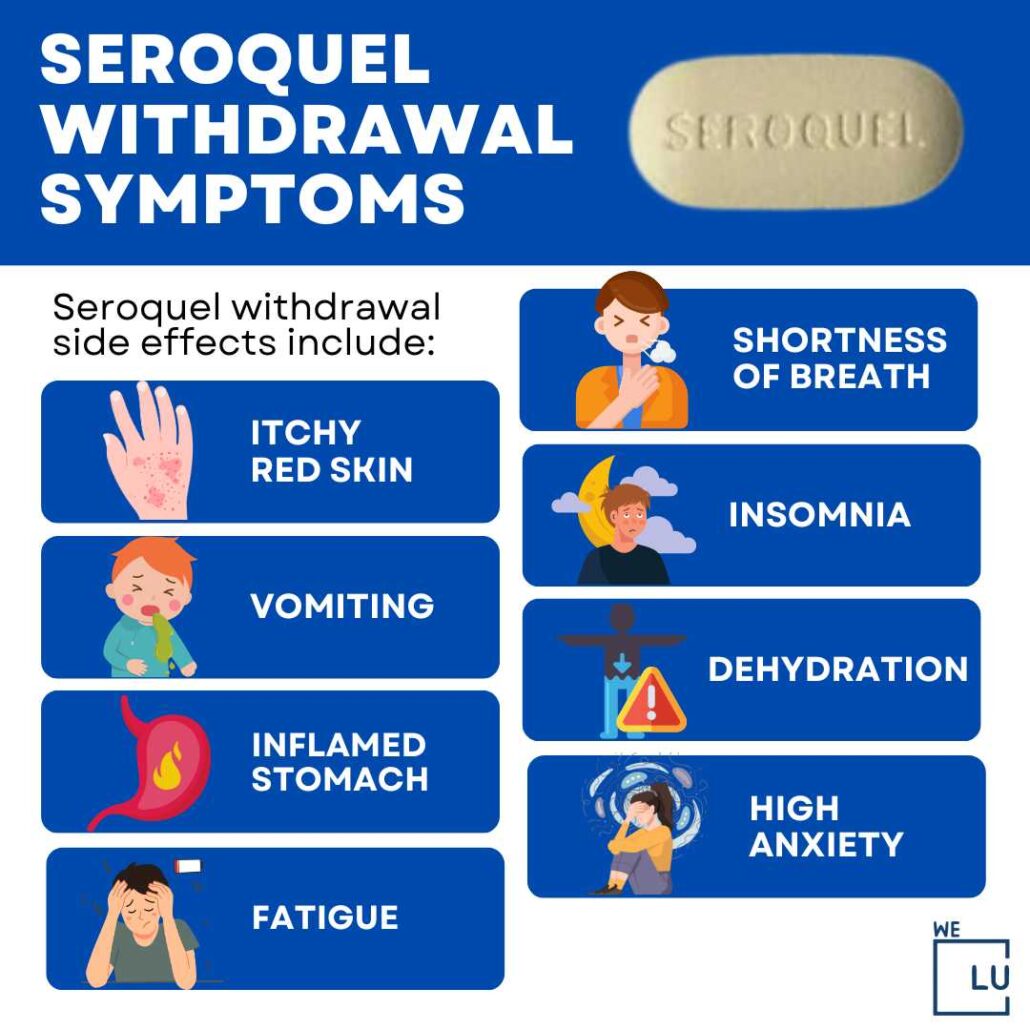
Embed the above “Seroquel Withdrawal Symptoms” Infographic to your Website. This infographic is provided by the We Level Up addiction treatment center team. To use the above infographics, you agree to link back and attribute its source and owner at https://welevelupnj.com/addiction/seroquel-withdrawal/
Seroquel Withdrawal Symptoms image link: https://welevelupnj.com/wp-content/uploads/2023/08/Seroquel-Withdrawal-Symptoms-1-1030×1030.jpg
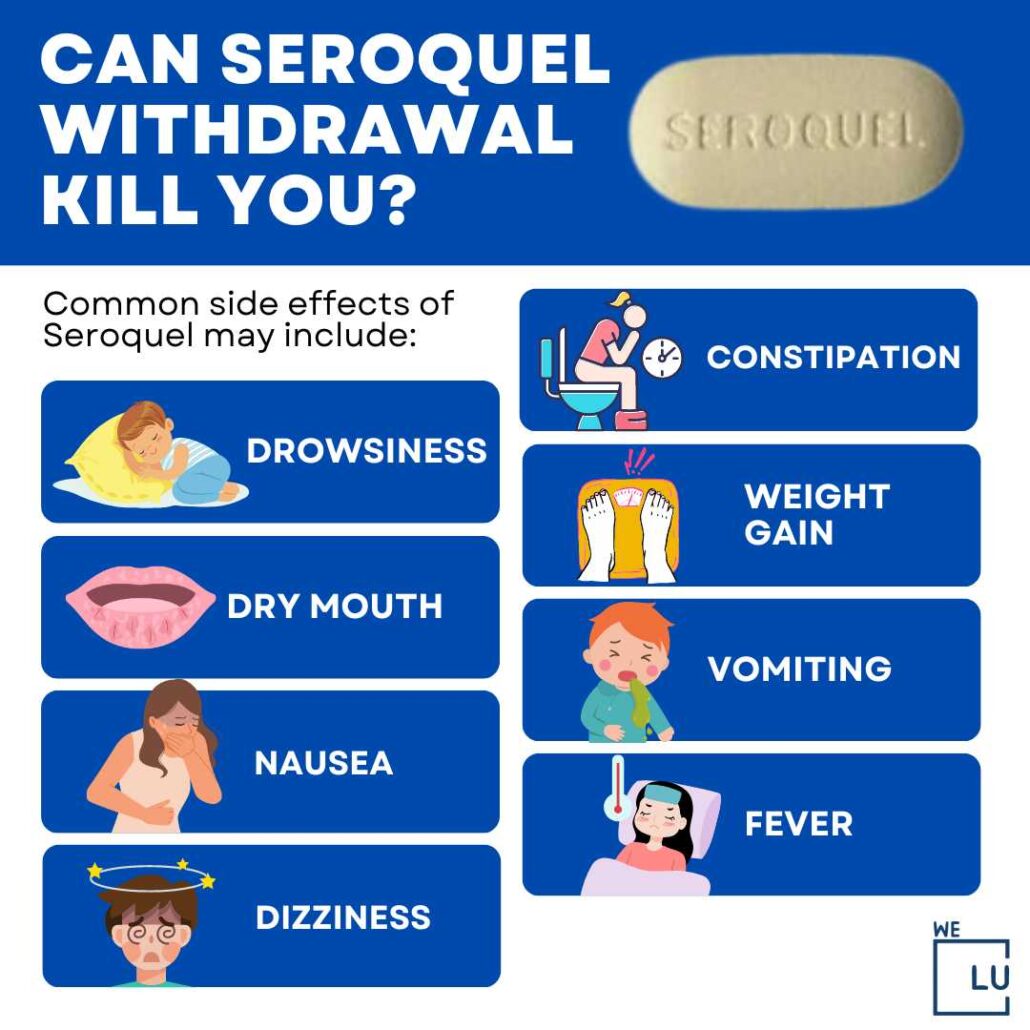
Embed the above “Can Seroquel Withdrawal Kill You?” Infographic to your Website. This infographic is provided by the We Level Up addiction treatment center team. To use the above infographics, you agree to link back and attribute its source and owner at https://welevelupnj.com/addiction/seroquel-withdrawal/
Can Seroquel Withdrawal Kill You? image link: https://welevelupnj.com/wp-content/uploads/2023/08/can-seroquel-withdrawal-kill-you-1030×1030.jpg
Mood or Behavior Changes Due to Seroquel Withdrawal
People with bipolar disorder or schizophrenia demand close monitoring during treatment with antidepressant and antipsychotic medications. Someone with severe mental illness may abruptly stop taking medication due to thought and perception disruptions. Caregivers should immediately notify a treating physician if they notice changes in mood or behavior in patients they suspect may have stopped taking their medication. Seroquel maintains its antipsychotic effects even when a patient misses one or two doses; to maintain its efficacy. However, patients should take Seroquel as prescribed.
How to Deal with Seroquel Withdrawal?
Seroquel is a prescription drug generally not considered to have much addictive potential or risk of dependence. However, it has been reported before, and as time passes, more and more cases of addiction to Quetiapine and long term effects of Seroquel are documented [4]. Stopping Seroquel side effects are uncomfortable enough to push them back into using the drug, even if it is no longer medically needed. it is the same with quitting Vyvanse cold turkey.
Quitting the medication can be challenging because it is potent and affects primary central nervous system (brain and spinal column) functions. The regulation of neurotransmitters and histamine, dopamine, serotonin, and norepinephrine levels is greatly affected. Therefore, it can be dangerous when a person decides to stop Seroquel cold turkey. It is even more difficult if one has been using this drug with other substances, such as alcohol or other medications, which are likely to increase the effect of the medicine, and can lead to overdose.
Here Are Some Tips That Can Be Helpful For Withdrawal Seroquel Symptoms:
- Increase the acidity of urine to expedite the excretion of drug metabolites from the system.
- As difficult as it may be at that period, exercises are efficient and can boost metabolism.
- Drink lots of water to stay hydrated and to improve the detox process.
- Eat healthy balanced diets.
- Ask a doctor for recommended supplements to revitalize the system and help the overall process.

First-class Facilities & Amenities
World-class High-Quality Addiction & Mental Health Rehabilitation Treatment
Rehab Centers TourRenowned Addiction Centers. Serene Private Facilities. Inpatient rehab programs vary.
Addiction Helpline (877) 378-4154Proven recovery success experience, backed by a Team w/ History of:
15+
Years of Unified Experience
100s
5-Star Reviews Across Our Centers
10K
Recovery Success Stories Across Our Network
- Low Patient to Therapist Ratio
- Onsite Medical Detox Center
- Comprehensive Dual-Diagnosis Treatment
- Complimentary Family & Alumni Programs
- Coaching, Recovery & Personal Development Events
Seroquel Withdrawal Timeline
Seroquel withdrawal can be categorized into three main types based on when the Quetiapine withdrawal timeline phases will likely occur following abrupt interruption of use.
How Long Does Seroquel Withdrawal Last?
Although the withdrawal symptoms can continue for up to a week, they often start between the first and fourth day after stopping the medicine. The symptoms may persist for up to six weeks in some instances.
Rebound withdrawal signs typically start simultaneously (one to four days after ceasing medication). Some of these symptoms aren’t always connected to Seroquel withdrawal. However, these symptoms could last for six weeks. An individual will experience chronic post-withdrawal if they last any longer.
New Withdrawal
Coming off Seroquels withdrawal symptoms generally occur around one to four days after a person’s last usage of the prescription drug or other psychotropic medications.
Does Seroquel make you last longer in bed? No. Withdrawal symptoms of Seroquel can include sleep disturbances, nausea, abdominal pain, and other adverse symptoms. The intensity of the withdrawal symptoms from Seroquel depends on the individual, the length of the drug used, and the dosage.
These new symptoms of Seroquel withdrawal are short-lasting and reversible. Generally, the person is mainly recovered within a week. However, some symptoms may persist for up to six weeks, perhaps with less intensity.
Rebound Withdrawal
Rebound withdrawal symptoms can also emerge 1 to 4 days after stopping Quetiapine. However, these Seroquel withdrawals may not be “withdrawal,” but a rebound or re-emergence of the underlying symptoms the medication was treating.
Sometimes, the rebound symptoms are more severe than the original symptoms when you discontinue Seroquel. Understanding the rebound effect explains why certain drugs, particularly those that have an immediate and intense effect on the nervous system, are very addictive.
One of the ironies of Seroquel addiction is that the rebound effect causes the person taking Seroquel to experience the same impact they were hoping to escape through drug use.
Persistent Post-Withdrawal Disorder
The persistent post-withdrawal disorder is when the Seroquel side effects withdrawal persists past the six-week mark. How long does Seroquel stay in your system? You can inform a possible employer, school, or addiction treatment facility that you need this medication If you take Seroquel as prescribed. It may show up on a test administered in these situations. However, it is not a medication that is commonly tested for.
How To Get Off Seroquel?
Abrupt disuse of Seroquel can result in withdrawal and severe insomnia side effects, so tapering is a preferred method to limit the number of withdrawal symptoms.
Evaluate your tolerance and create a Seroquel taper schedule. Some patients have extremely high daily dosages of 300 mg or more of Seroquel to sleep. If you taper within a month, the milligram cut every week will be much higher, as will withdrawal symptoms. Searched for “coming off Seroquel what to expect?” Some of the physical symptoms also include rapid weight loss after stopping Seroquel and withdrawal diarrhea.
Can You Stop Seroquel Cold Turkey?
Quitting the drug can be difficult because it is potent and affects primary CNS functions. The regulation of neurotransmitters and dopamine, histamine, serotonin, and norepinephrine levels is greatly affected. It can be dangerous when a person decides to stop Quetiapine cold turkey. It is even more difficult if one has been using Seroquel with other substances, such as alcohol or other medications, which are likely to increase the effect of the medicine, and can lead to Seroquel overdose.
Seroquel side effects can be intense, especially for those who may have developed a tolerance for high doses. When quitting cold turkey, withdrawals from Seroquel affect brain functions, creating a sudden disruption in an established system.
How to Stop Taking Quetiapine Safely?
Here is how to taper off Seroquel: A doctor should create a tailored Quetiapine withdrawal schedule to wean off the drug and prevent relapse. To do this, the doctor assesses the patient’s current dosing and tolerance level. For instance, a patient on 300 mg daily may have to reduce the dose drastically to 50 mg weekly. This is entirely up to the physician after a proper medical analysis of the patient’s condition. This medication change will likely cause limited withdrawal symptoms; however, it is imperative to stick to the drug tapering schedule.
Treatment for Seroquel Addiction
In some individuals, drug addiction results from an underlying mental health issue. In others, addiction develops first, and mental health symptoms arise later. Sometimes, mental health symptoms may be worsened by drug abuse.
Although there is no single cause for addiction, a mental health issue may increase the likelihood of developing an addiction and vice versa.
Medical Detox
How to wean off Seroquel? An individual suffering from an addiction will experience a range of withdrawal symptoms when they stop taking the drug. This is known as the detox period, which may last a few days or weeks. These withdrawal symptoms can be harmful, uncomfortable, and even life-threatening, and medically assisted detox at a rehab center is recommended. Individuals who enter a medical detox facility can withdraw from the substance safely in a secure and comfortable setting.
World-class, Accredited, 5-Star Reviewed, Effective Addiction & Mental Health Programs. Complete Behavioral Health Inpatient Rehab, Detox plus Co-occuring Disorders Therapy.
CALL (877) 378-4154End the Addiction Pain. End the Emotional Rollercoaster. Get Your Life Back. Start Drug, Alcohol & Dual Diagnosis Mental Health Treatment Now. Get Free No-obligation Guidance by Substance Abuse Specialists Who Understand Addiction & Mental Health Recovery & Know How to Help.
Inpatient Treatment
Inpatient treatment lasts anywhere from 21 days to several months. It’s a sensible treatment option for individuals battling severe substance abuse and addiction. Clients will be monitored 24/7 by medical professionals who understand addiction and its underlying issues. Clients will live on-site and attend a wide range of activities, including:
- 12-step meetings
- One-on-one therapy sessions
- Group therapy sessions
There’s a broad array of inpatient centers to choose from, ranging from those that use the 12-step method to those that offer a more holistic approach. However, all centers have the same focus: to help the patient learn healthier habits, attitudes, and behaviors.
Aftercare
Before leaving the treatment facility, clients are encouraged to work with therapists and counselors to develop an aftercare plan. An aftercare plan aims to help patients maintain sobriety, find purpose in life, and create healthy relationships with themselves, friends, and family.
Although each individual receives an individualized plan, some standard components of a typical aftercare treatment plan include:
- Ongoing counseling
- Family therapy
- Participation in a 12-step or alternative support group
- Vocational rehabilitation
- Educational assistance
- Legal assistance
- Maintenance medication
- Relapse prevention programming
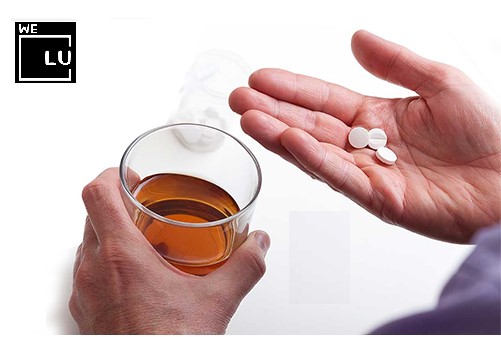
People suffering from an addiction and a mental health problem should seek treatment for a co-occurring disorder. According to the Substance Abuse and Mental Health Services Administration (SAMHSA), this type of treatment can:
- Lower the relapse rate
- Reduce the number of suicide attempts
- Lead to long-term sobriety
Many inpatient rehab centers offer dual diagnosis treatment where individuals receive all the medical, therapeutic, and holistic care they need to heal mentally, physically, emotionally, and spiritually. If someone struggles with Seroquel addiction because of its intense and often dangerous Seroquel withdrawal, that person needs to consider inpatient drug rehab. We Level Up NJ addiction specialists are standing by to help.
10 Most What Happens If You Suddenly Stop Taking Seroquel Frequently Asked Questions
-
Can Seroquel cause anxiety?
Seroquel works by helping to restore balance to the chemical messengers in your brain. It can help to improve concentration, decrease anxiety, and improve your moods and energy levels. Studies have indicated that abrupt discontinuation of Seroquel can result in withdrawal symptoms. Anxiety can be one of the symptoms of withdrawal from Seroquel.
-
How to taper off Seroquel?
Because of the potential implications of stopping Seroquel abruptly, the process should always be overseen by a medical professional. Ideally, the medication should be tapered with a planned, incremental lowering of the dosage taken over months.
-
How to stop taking Seroquel?
What happens when you stop taking Seroquel? If the decision to come off Seroquel is made, stopping should never be done abruptly unless to avert a life-threatening reaction. Always seek medical oversight and guidance for safety. Even when slowly tapering off the drug, there can still be some significant side effects of stopping Seroquel. There are many Seroquel withdrawal success stories, and if you decide to get help, you can live drug-free.
-
What does Seroquel do to the brain?
Seroquel is a medication that works in the brain to treat schizophrenia. It is also a second-generation antipsychotic (SGA) or atypical antipsychotic. Quetiapine, the active ingredient of Seroquel, rebalances dopamine and serotonin to improve thinking, mood, and behavior.
-
Can you die from Seroquel and alcohol?
FDA recommends that people who are taking Seroquel not use alcohol. Alcohol can suppress the body’s ability to use Seroquel effectively, causing smaller amounts of Seroquel to become more potent. Drinking alcohol while taking Seroquel could worsen the typical side effects of Seroquel. You can die from Seroquel and alcohol together, just as any concoction of substances can be fatal.
-
Is Seroquel considered a narcotic?
Is Seroquel an opioid? No. Seroquel is not widely considered a drug of abuse and is not a controlled substance; however, there have been reports of it being used nonmedically, especially by individuals in prison or psychiatric inpatient hospitals and those with a history of polydrug abuse. If you’re searching “Is Seroquel a narcotic drug?” “Is seroquel a narcotic?” “
-
What happens if you stop taking Seroquel?
Can you just stop taking Seroquel? No, with cold turkey. If you stop taking this medication abruptly, you may experience withdrawal symptoms such as insomnia (inability to sleep), nausea, and vomiting. Keep your doctor well informed of your feelings, both good and bad. If you’re looking for more drug information, such as “can you stop Vyvanse cold turkey?” or for narcotics abuse. Visit our homepage for different drug addiction navigation.
-
Is seroquel dangerous?
There is a risk of tardive dyskinesia (uncontrollable, repetitive facial movements) associated with all antipsychotics, including Seroquel. Significant weight loss has been reported, although it may cause weight gain in some people. May precipitate a manic episode in people with undiagnosed bipolar disorder.
-
What cold medicine can I take with Seroquel?
There are medications that may interact and cause very harmful effects. Consult your healthcare professional (e.g., doctor or pharmacist) for more information, and to discuss your unique situation.
-
Is Seroquel addictive?
Is Seroquel habit forming? No. Seroquel has no habit-forming potential, but it is not recommended to discontinue the drug before talking with your doctor, as withdrawal symptoms can occur.
Experience Transformative Recovery at the We Level Up Treatment Center.
See our authentic success stories. Get inspired. Get the help you deserve.



Start a New Life
Begin with a free call to an addiction & behavioral health treatment advisor. Learn more about our dual-diagnosis programs. The We Level Up treatment center network delivers various recovery programs at each treatment facility. Call to learn more.
- Personalized Care
- Caring Accountable Staff
- World-class Amenities
- Licensed & Accredited
- Renowned w/ 5-Star Reviews
We’ll Call You
Search We Level Up NJ Seroquel Withdrawal Detox & Mental Health Topics & Resources
Sources
[1] FDA – https://www.accessdata.fda.gov/drugsatfda_docs/label/2006/020639s026lbl.pdf
[2] Berling I, Buckley NA, Isbister GK. The antipsychotic story: changes in prescriptions and overdose without better safety. Br J Clin Pharmacol. 2016 Jul;82(1):249-54. DOI: 10.1111/bcp.12927. Epub 2016 Apr 15. PMID: 26945707; PMCID: PMC4917785.
[3] NIH– https://dailymed.nlm.nih.gov/dailymed/drugInfo.cfm?setid=0584dda8-bc3c-48fe-1a90-79608f78e8a0
[4] NCBI – https://www.ncbi.nlm.nih.gov/books/NBK459145/
[5] NCBI – https://www.ncbi.nlm.nih.gov/pmc/articles/PMC4716733/
[6] Risks Of Mixing Prescription Drugs With Alcohol And Effective Treatment Options (welevelup.com)
[7] McLellan AT. Substance Misuse and Substance Use Disorders: Why do they Matter in Healthcare? Trans Am Clin Climatol Assoc. 2017;128:112-130. PMID: 28790493; PMCID: PMC5525418. With Drug Addiction Quotes and related sobriety quotes
[8] 101 Motivational Quotes for Recovering Addicts – and related drug addiction quotes plus sobriety quotes – WeLevelUp.com
[9] Co-Occurring Dual Diagnosis Treatment – with related drug addiction quotes plus sobriety quotes – We Level Up Florida
[10] 100 Sobriety Anniversary Quotes -drug addiction quotes plus sobriety quotes – WeLevelUp.com





